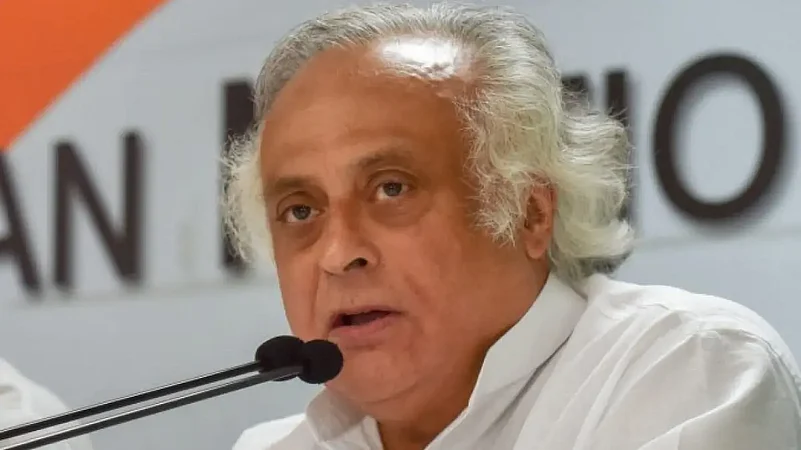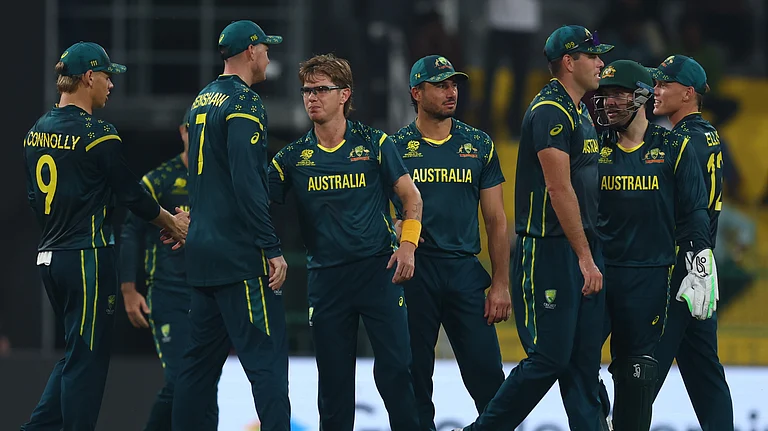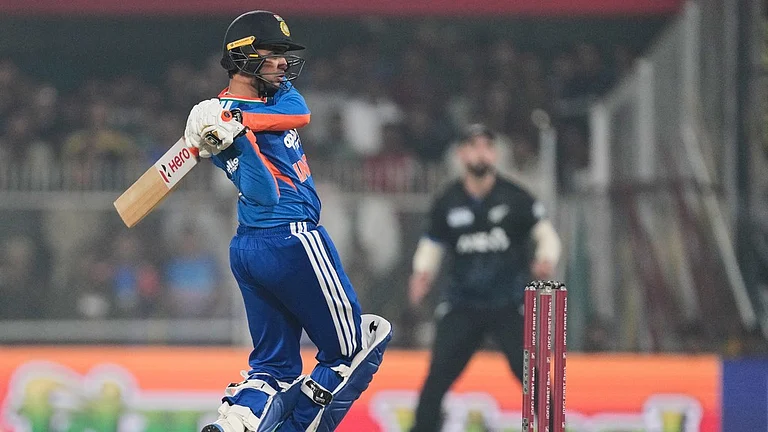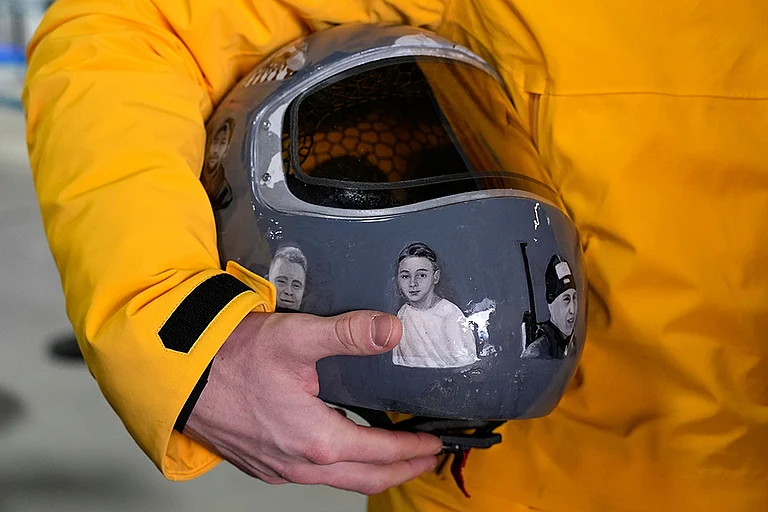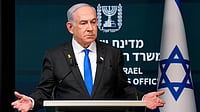The Congress Tuesday launched the logo, tagline and website of its upcoming 'Bharat Jodo Yatra' which, it said, was necessitated in national interest due to "growing economic inequality, social polarisation and political division" in the country.
The Opposition party also hopes to rejuvenate its cadre and enhance mass contact through the campaign.
Trajectory of the Bharat Jodo Yatra
Addressing a press conference, Congress general secretary Jairam Ramesh said the main yatra will cover 3,570 km from Kanyakumari in the south to Kashmir in the north in about five months beginning September 7.
It will pass through 12 states and two Union Territories. Simultaneously, smaller 'Bharat Jodo Yatras' will be taken out in various states, he said.
The party claimed a 'padayatra' or mass contact programme of this scale has not taken place in independent India.
The yatra will start from Kanyakumari in Tamil Nadu and then move northwards passing through Thiruvananthapuram, Kochi, Nilambur, Mysuru, Bellary, Raichur, Vikarabad, Nanded, Jalgaon, Indore, Kota, Dausa, Alwar, Bulandshahr, Delhi, Ambala, Pathankot, Jammu, and culminate in Srinagar.
Asked why the yatra was not passing through the poll-bound states of Gujarat and Himachal Pradesh, Ramesh said questions are often raised as to why it will go to one state and not another, but the route was decided keeping in mind factors such as security and geography.
"Digvijay Singh's committee analysed five or six different routes. When the final route was chosen, it was done for several reasons such as security and geography," he said.
"There are some such routes with places where one has to travel by road, boat, or through forests, like the route through Chhattisgarh...The route chosen is the most direct in terms of 'padayatra'," he said.
Ramesh said when Rahul Gandhi was asked during his interaction with civil society groups that he is travelling from south to north India but what about travelling from west to east, he said "we are also considering that", but did not give any timeline.
Former Congress chief Rahul Gandhi will participate in the yatra from Kanyakumari.
All you need to know about the yatra
"There will be 100 'padayatris' who will walk from start to finish. They will be 'Bharat Yatris'. Around 100 people will keep joining from the states through which this yatra is not passing, these people will be 'Atithi Yatras'. Around 100 yatris will be involved from the states through which the journey will pass, these will be 'Pradesh Yatris'. At a time, there will be 300 padayatris," Singh said.
Gandhi along with several top leaders, workers and civil society members will walk for about 18 to 25 km in a day and spend the night in containers mounted on trucks. Gandhi will hold meetings with various groups such as fishermen and traders during the Yatra.
Responding to a question, he said, "Rahul Gandhi is a big leader of the country and will be a 'Bharat Yatri' in the yatra."
To a question on looking at the yatra from the perspective of the Lok Sabha elections, Singh told the press conference that it should not be looked upon from a political lens.
"Do we as citizens of India not feel the need for it because of increasing economic, social disparities, religious frenzy being spread, hatred being spread, each other's faith being questioned. Is there no need for uniting India?" Singh said.
Responding to another question regarding certain organisations that had participated in the anti-corruption movement against the then UPA government being present in the interaction with Rahul Gandhi on Monday, Ramesh said there were socialist, Lohiaite organisations, those affiliated with the Left parties, Congress supporters and its critics, present at the meeting.
"Many people who met us yesterday, the same organisations used to oppose our government 10 years ago. But it is a matter of happiness that they have understood today that there is no alternative but the Congress party," Ramesh said.
"They have understood that the campaign they had run 10 years ago was under some illusion, but today the Constitution is in danger, democracy is in danger and the Congress has to be strengthened and given support," he said.
Ramesh asserted the yatra is a political initiative but a non-partisan one.
Singh, who heads the party's yatra organising committee, told the press conference that Congress president Sonia Gandhi wants people from every religion, caste and community to participate in the campaign.
"Neither has any 'padayatra' nor any mass contact programme of this scale took place in the country. We are proud that the Congress, which secured independence for the country through a people's movement, is now aiming to bring back social harmony and prevent the country from losing its character through that people's movement," he said.
"We want to bring the Bharat Jodo Yatra in the form of a public movement," he added.
Singh and Ramesh unveiled the tagline of the yatra -- 'Mile Kadam, Jude Watan' -- and a four-page pamphlet. The leaders also launched the website and urged those wanting to participate in the yatra to register on it.
"Ek tera kadam, ek mera kadam, mil jaye to jud jaye apna watan (one step yours, one step mine, together they can unite India)," Rahul Gandhi said in a tweet and also put the logo of the yatra as his Twitter profile picture.
Ramesh said Rahul Gandhi had identified three main reasons for launching the yatra such as challenges of economic inequality; social polarisation in the name of caste, religion, language, food, dress, and political division that is taking place.
"Political division between Centre and states, the abuse of the Constitution, the misuse of investigative agencies, the growing centralization of power in the Union government are making state governments irrelevant, making panchayats irrelevant, making Nagar Palikas irrelevant," he said.
(With PTI Inputs)






